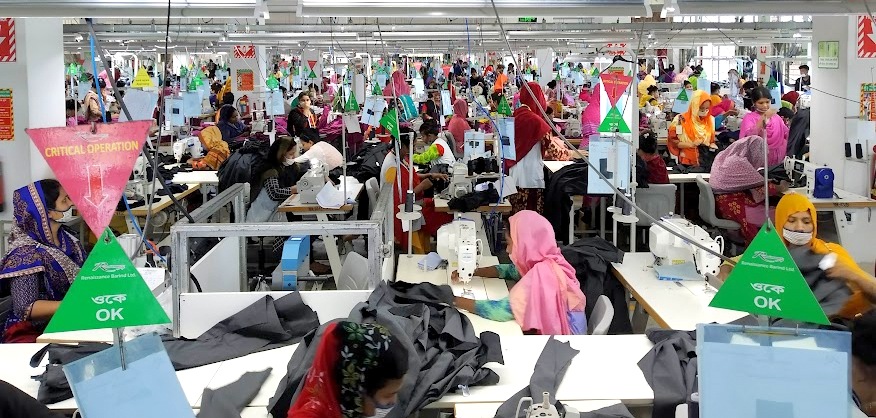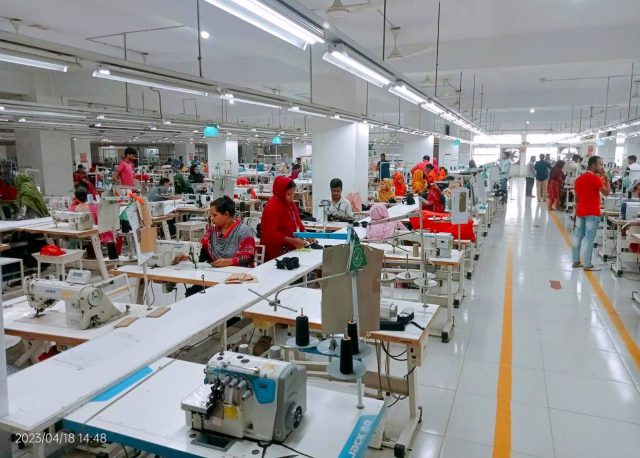Bangladesh has become a major player in the global apparel market, luring many multinational brands and shops to produce their clothing there. The main arguments for why Bangladesh is a highly advantageous location for clothing production are examined in this analysis. Bangladesh has emerged as a top location for apparel manufacturing thanks to its cost-effectiveness, competent labor, and friendly trade policies.
1) Skilled Workforce:
Bangladesh has created a workforce in the apparel industry that is highly effective and skilled. Over time, the industry has expanded tremendously, providing millions of workers with new job prospects. The workforce in the nation has a wealth of experience making clothes, which facilitates simpler manufacturing procedures and increased output. The accessibility of skilled laborers guarantees the efficient and successful achievement of production goals.
2) Cost-Effectiveness:
Bangladesh is well known for its affordable clothing production. The nation’s affordable labor expenses make it a desirable alternative for businesses trying to reduce production costs. Bangladesh has a lower cost of living than many other nations, which results in relatively reduced labor costs. This enables companies to make garments at more competitive prices while upholding quality standards.
3) Industry Experience and Infrastructure:
Bangladesh has established a stable supply chain and infrastructure that are geared exclusively for the apparel industry. The nation’s extensive network of manufacturing facilities, textile mills, and ancillary businesses makes it easier to move materials and carry out production tasks efficiently. Bangladesh has developed its capabilities through years of experience in the apparel industry, providing businesses with a dependable and effective ecology for the production of clothing.
4) Large-Scale Production Capacity:
Bangladesh has a remarkable ability for industrial-scale production. The nation has a large number of factories with cutting-edge equipment and technologies to fulfill orders with high volumes. This scalability helps manufacturers to complete sizable orders within constrained time frames, guaranteeing prompt delivery and client satisfaction. Bangladesh’s production capacity can satisfy a variety of market expectations whether it is making simple apparel products or intricate designs.

5) Favorable Trade Policies:
Bangladesh has implemented favorable trade policies, attracting international businesses to establish manufacturing operations within its borders. The country reaps the benefits of favorable trade accords with a number of nations, notably the United States and the European Union. These agreements, like the Generalized System of Preferences (GSP), lower trade barriers and increase the competitiveness of Bangladeshi clothing in the international market by granting duty-free access to important markets.
6) Ethical and Sustainable Manufacturing:
Over the years, Bangladesh has made significant strides in improving ethical and sustainable manufacturing practices. The country has implemented stricter regulations and compliance standards to ensure worker safety, labor rights, and environmental sustainability. Initiatives such as the Accord on Fire and Building Safety in Bangladesh and the Alliance for Bangladesh Worker Safety have been instrumental in driving positive change and ensuring safer working conditions within the industry.
7) Proximity to Key Markets:
Bangladesh, which is in South Asia, is close to important international markets. As a result of this ideal position, producers may more easily export their goods around the world at lower shipping prices and transit times. Businesses can quickly access important markets in Europe, North America, and beyond with effective logistics and well-connected transportation networks, increasing their competitiveness in the quick-moving fashion sector.
Manufacturing apparel in Bangladesh offers numerous benefits for businesses seeking cost-effective, efficient, and sustainable production. The country’s appeal as a top garment manufacturing hub is fueled by its affordable labor costs, experienced workforce, breadth of industry knowledge, supportive trade regulations, and ethical production methods. Bangladesh’s position as a vital option for textile manufacturers looking to streamline their supply chains and compete in the global marketplace is further cemented by its large-scale production capability and proximity to important markets.
Read more write-ups of this author: Click Here

About The Author:
Mirza Rakib Hasan Shovon
Managing Director and CEO
Aristo Tex International
Technet Corporation
Anyvas
Director
Research & Development
International Corporate Association of Professionals (InCAP)





















